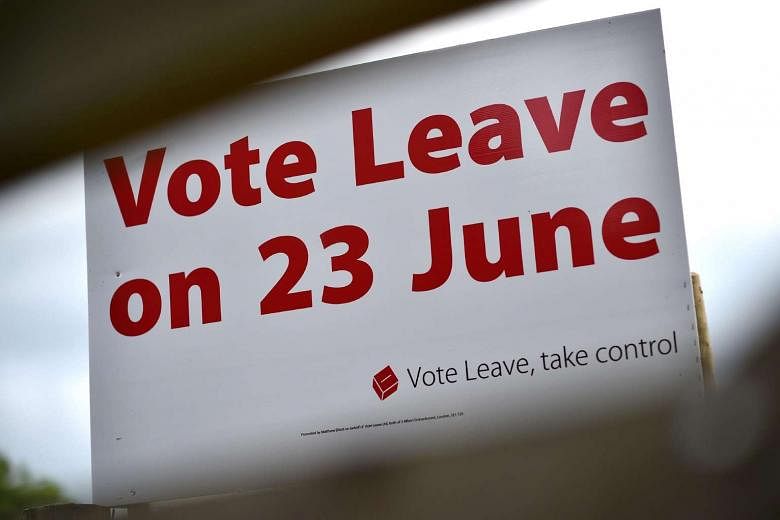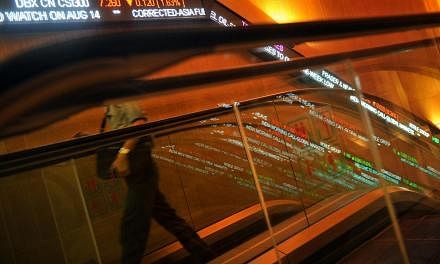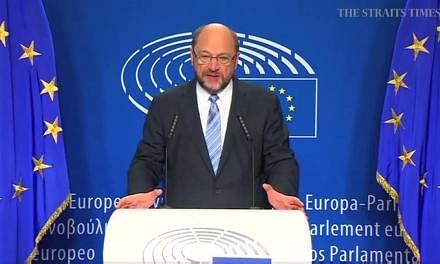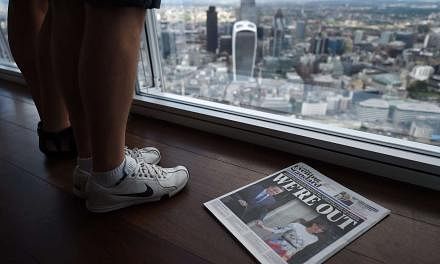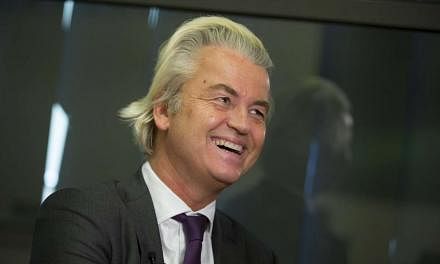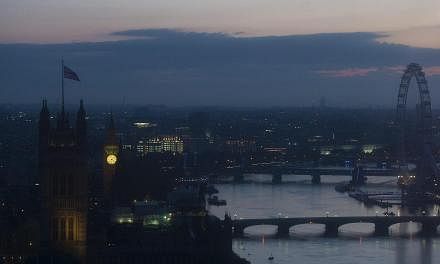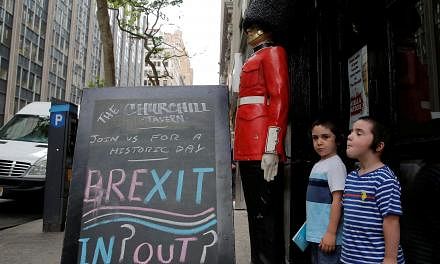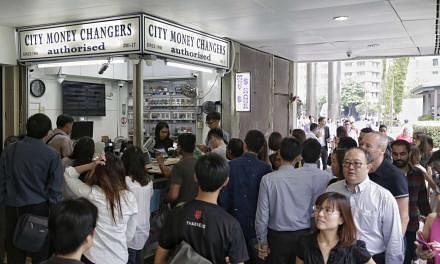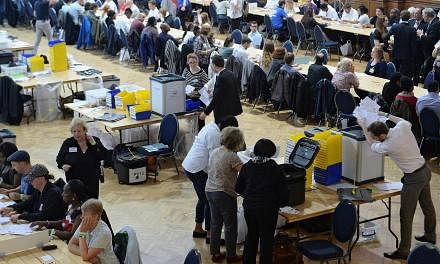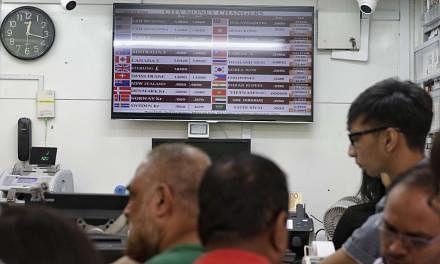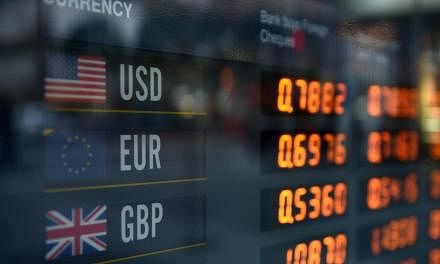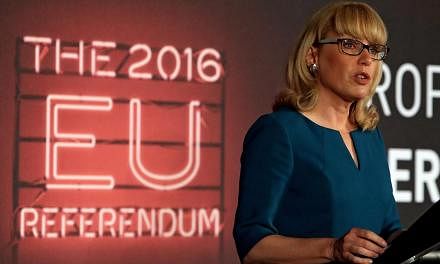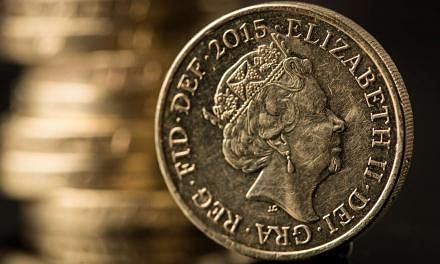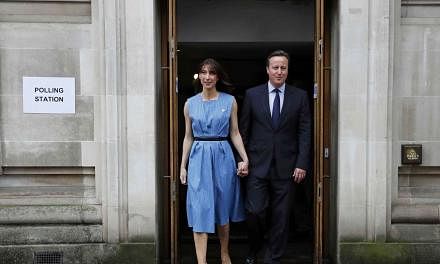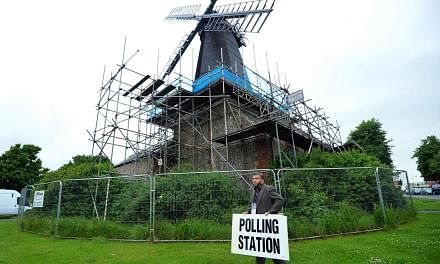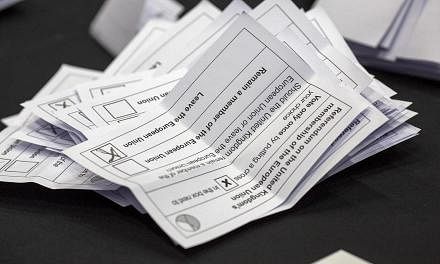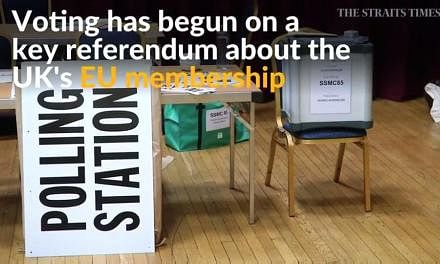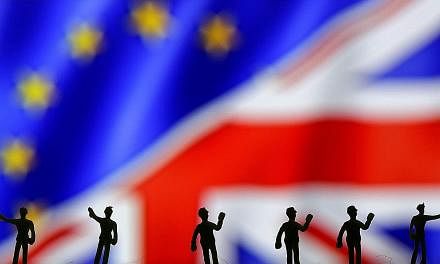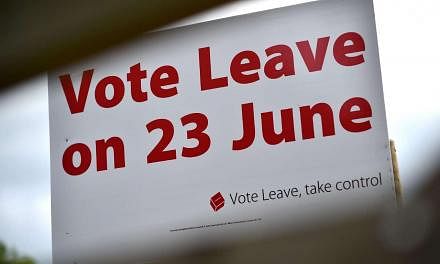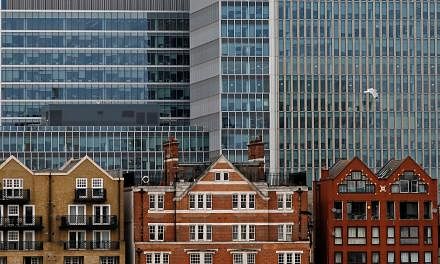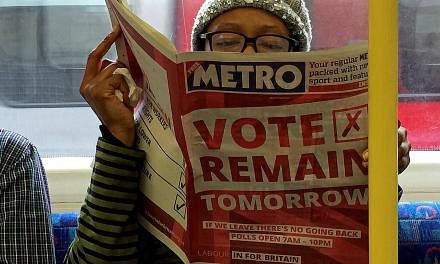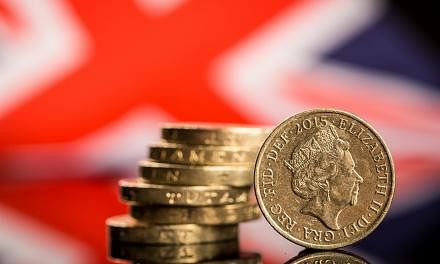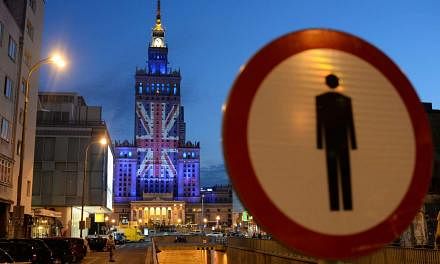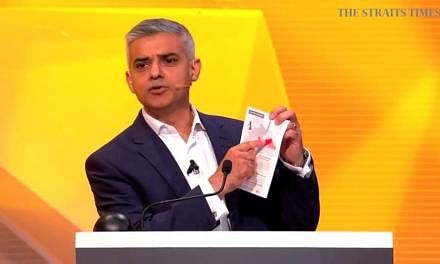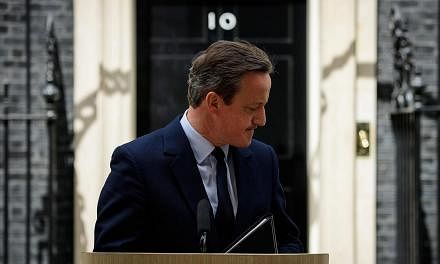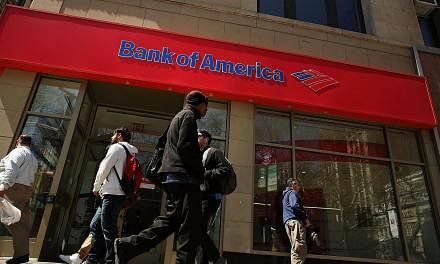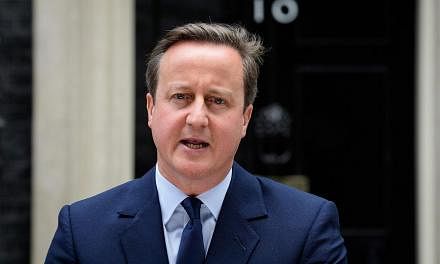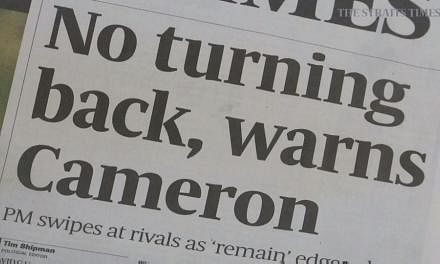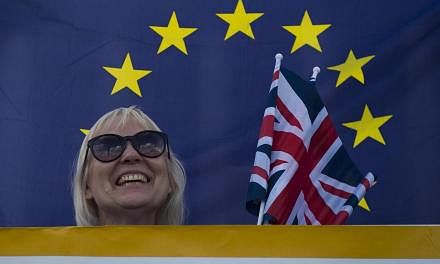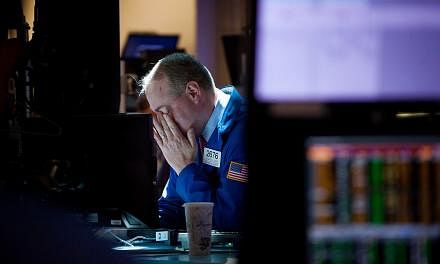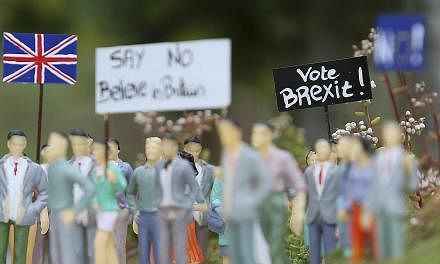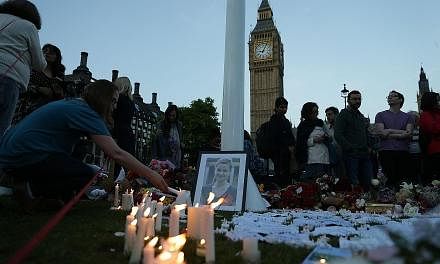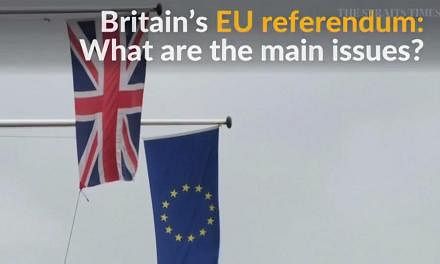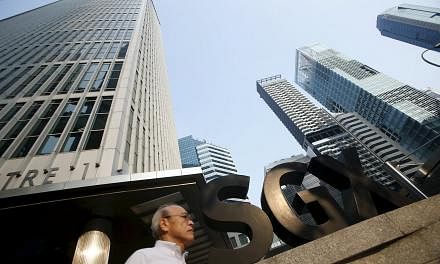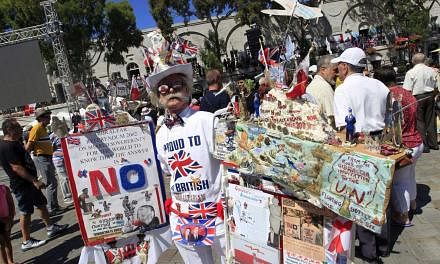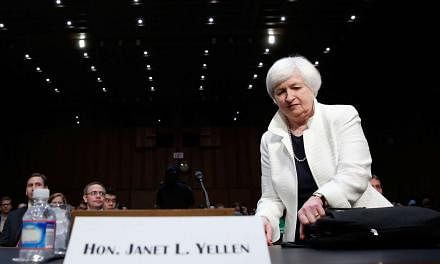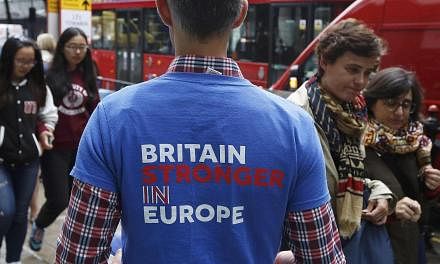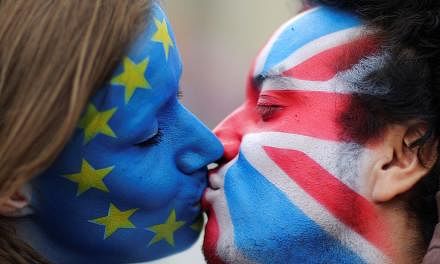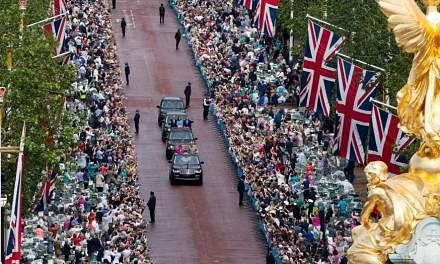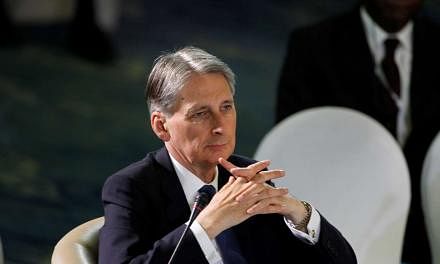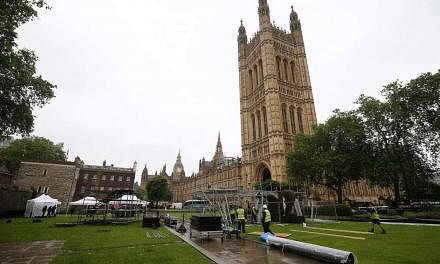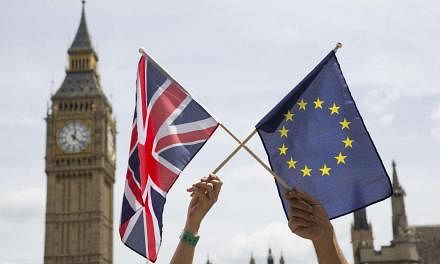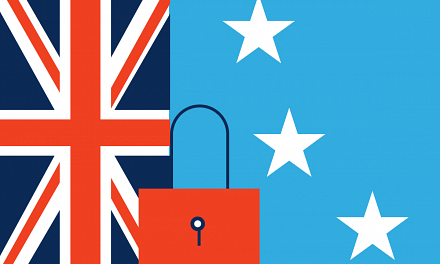Sir Richard Branson, Britain's best-known entrepreneur, said he has "yet to hear a convincing reason why the UK should give up" membership of the European Union (EU). Legendary hedge fund manager George Soros this week warned of a "Black Friday" of steep currency falls if the referendum favoured a Brexit.
Add to the list the heads of the Bank of England, International Monetary Fund (IMF) and Mr Bill Gates of Microsoft.
Chancellor George Osborne, who is leading the economic argument for the ruling party's "Remain" group, said on Sunday that the British economy could take a hit far worse than the IMF predictions of a near-6 per cent loss of gross domestic product (GDP).
"Personally, I think it is possible it could be quite a lot worse than that," he said. "There would be a significant hit to the British economy if we vote to leave. Why go through the door that is a one-way exit, with no turning back?"
As British people ponder which way to vote in today's referendum, at stake is Britain's position as the dominant business hub for Europe. No single industry faces as much disruption as financial services because London, and its square-mile financial district known as the City, is the unquestioned financial centre of Europe, perhaps the world even.
There are some 250 foreign banking institutions in the City, all of which access the EU, thanks to the single market that EU membership provides. The business thus available contributes a tenth of Britain's GDP and about an eighth of the taxes collected.
One would think that it should be obvious to all that remaining within the EU fold is far more beneficial than a risky Brexit, with no knowing where that could lead, especially as an angry and annoyed Europe rounds on its departing partner.
Interestingly, though, there are plenty in the City who do not buy that argument.
"A lot of this scaremongering about trade and investment flows is humbug," a senior banker at Standard Chartered Bank with long experience in Asia told The Straits Times. "I already voted "Leave" by postal ballot as I would be away from London this week."
His bank's leadership has endorsed the Remain camp but that, the banker said, does not bind him. His arguments for Brexit are simple: Britain is the world's fifth-largest economy. Given time, it will get its economic pacts in place, including with Commonwealth nations, notably India. And it is wonderful to have the yoke of EU bureaucracy off the shoulders.
Then, he added his clincher: "Brexit will also give us the ability to control immigration to take in only those it needs, rather than those it must take."
Mr Lutfey Siddiqi, a governor of the London School of Economics, who spent years as an investment banker with UBS, Deutsche Bank and Barclays, said ideas such as making a living off the Commonwealth are emblematic of the delusions of grandeur that mark some of those in the Leave camp.
"There is this sentiment that if the United States can be exempted from so many rules, why can't we? But they forget that there is a matter of scale - the British economy is only slightly larger than that of the state of California."
Mr Siddiqi, who is also an adjunct professor of risk management at the National University of Singapore, noted that when Britain declined to participate in the single currency when the euro was launched 17 years ago, there was pressure to move the financial centre for euro clearing to Frankfurt.
"Surely, Europe will bring this up again if Brexit were to happen," he said.
That would be a huge loss for London because about a third to 40 per cent of euro-denominated assets are traded from here.
Indeed, Mr Christian Noyer, the former governor of the French central bank, has said Europe will "no longer tolerate" London remaining the trading centre for euro should Brexit go through.
Walking around the City, it is impossible not to be impressed by the special buzz that surrounds London. Once the preserve of public school-educated British bankers in bespoke suits and clipped accents, it is, today, a multitude of ethnicities - Indians, Chinese, Germans, Jamaicans and others - who share offices or mingle at after-work "drinkies".
Brexit could take the shine off this party, which began with former premier Margaret Thatcher's Big Bang reforms 30 years ago and largely continued until the global financial crisis.
In that period, it lured the best and brightest, yielding thousands of high-paying jobs, and seemingly one-way bets on property that enriched thousands of people around the world, including some Singaporeans.
Sometimes, scandal followed. In 2002, Barclays Capital fired five investment bankers after the investment bank was embarrassed when it was revealed that the group, celebrating a successful deal, had spent £44,000 on a single binge at celebrity chef Gordon Ramsay's Petrus restaurant. One of the wine bottles consumed - a 1947 vintage - was priced at £12,300.
That glow has dimmed latterly as new capital standards and a tough global environment depressed banks' performance; the first two quarters of this year have been particularly severe.
Brexit could make things worse: JPMorgan Chase has warned that as much as a quarter of the 16,000 staff it employs in Britain may lose their jobs. HSBC has said hundreds of its jobs in investment banking and the trading room would move to Paris.
Mr Peter Mandelson, a former Labour minister and European trade commissioner, told Bloomberg News recently: "London has grown as Europe's financial centre because we are part of the EU single market, because we are part of the action."
If Britain leaves the EU, London "won't end as a financial centre, it will just be second-tier", he said.
Some die-hard Londoners simply do not agree.
"It will be a temporary discomfort, no more," Mr Andrew Wells, a private equity player with investments in Mayfair, told The Straits Times.
"You cannot go wrong if you have good services and products to offer. And where else in the world do you have 33 Michelin stars? London is sexy. You cannot replace it."
